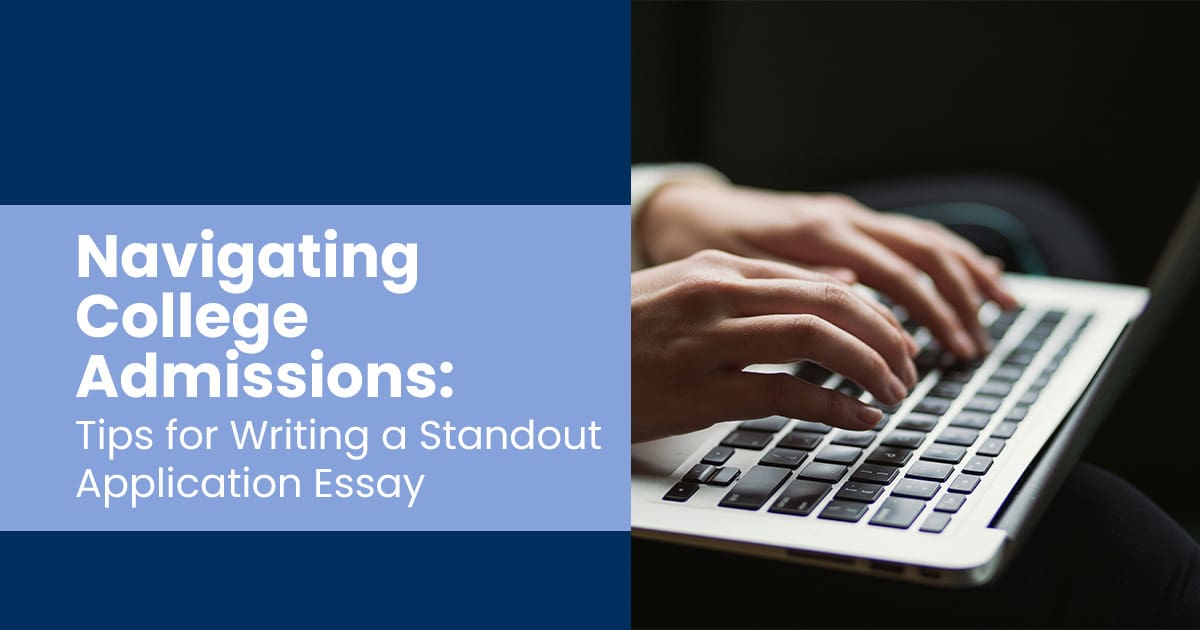Feeling overwhelmed by the college application process? Wondering how to make your essay stand out in a sea of applicants? Let’s dive into some tips and strategies that can help you craft a memorable and impactful application essay.
The college application essay is a crucial component of the admissions process. It provides a unique opportunity for students to showcase their personality, achievements, and aspirations. However, writing a standout essay can be challenging. In this guide, we’ll explore practical tips and strategies to help you write an essay that captures the attention of admissions officers and sets you apart from other applicants.
Understanding the Purpose of the Application Essay
The college application essay is more than just a writing sample; it’s a chance to present yourself beyond grades and test scores. Admissions officers use the essay to get a sense of who you are as a person, what you value, and how you think. It’s your opportunity to make a personal connection and show them why you would be a great fit for their institution.
Admissions officers are looking for essays that are authentic, reflective, and well-written. They want to see your unique voice and personality shine through. They’re interested in your ability to think critically, reflect on your experiences, and articulate your thoughts clearly. Demonstrating personal growth, resilience, and a clear sense of purpose can make your essay stand out.
Brainstorming and Choosing a Topic
Start by brainstorming your unique experiences and stories. Think about moments that have shaped you, challenges you’ve overcome, or achievements you’re proud of. Reflect on what these experiences say about you and how they’ve influenced your goals and values. Your story doesn’t have to be extraordinary; it just needs to be genuine and meaningful to you.
Once you have a list of potential topics, narrow it down by considering which story best represents who you are and what you want to convey to the admissions committee. Focus on a specific event or experience that had a significant impact on your life. A well-chosen topic will allow you to delve deep and provide detailed insights into your character and growth.
Be cautious of common essay topics that are often overused, such as sports victories or mission trips, unless you can bring a unique perspective to them. Avoid clichés and generic stories that don’t offer new insights into your personality. Instead, aim for authenticity and originality in your storytelling.
Crafting a Compelling Narrative
A well-structured essay is easier to read and more impactful. Start with an engaging introduction that grabs the reader’s attention and sets the stage for your story. The body of your essay should develop your narrative, providing specific examples and details. Conclude with a strong ending that ties everything together and leaves a lasting impression.
Your essay should reflect your true self. Write in your own voice and be honest about your experiences and feelings. Don’t try to impress the admissions officers with what you think they want to hear. Instead, focus on sharing your genuine thoughts and reflections. Authenticity resonates more than perfection.
One of the most effective writing techniques is to “show, don’t tell.” Instead of simply stating that you’re determined or compassionate, illustrate these qualities through specific anecdotes and vivid details. Use descriptive language to paint a picture and bring your story to life. This approach makes your essay more engaging and memorable.
Polishing and Perfecting Your Essay
Writing a great essay involves multiple drafts. Start by getting your ideas down on paper, then revise for clarity, coherence, and impact. Focus on refining your narrative and strengthening your arguments. Take breaks between writing sessions to approach your essay with fresh eyes. Each revision should bring you closer to a polished final draft.
Don’t hesitate to seek feedback from trusted teachers, mentors, or peers. They can provide valuable insights and identify areas for improvement. Be open to constructive criticism and use it to enhance your essay. Remember, the goal is to present the best version of your story.
Proofreading is essential for catching grammar, spelling, and punctuation errors. Use tools like Grammarly to help identify mistakes, but also read your essay aloud to spot any awkward phrasing or inconsistencies. Consider asking a friend or family member to proofread as well. A clean, error-free essay demonstrates attention to detail and professionalism.
Additional Tips and Strategies
Adhering to the word limit is crucial. It shows that you can follow instructions and communicate effectively within constraints. Be concise and eliminate unnecessary words or details. Focus on what’s most important and impactful in your story.
Striking the right balance between humility and confidence can be challenging. Highlight your achievements and strengths without coming across as boastful. At the same time, don’t downplay your accomplishments. Be proud of what you’ve achieved and articulate it with confidence and grace.
If you choose to write about sensitive or personal topics, approach them with care and consideration. Focus on how these experiences have shaped you and what you’ve learned from them. Highlight the positive outcomes and personal growth resulting from challenging situations. This approach shows resilience and maturity.
We’ve explored key tips and strategies for writing a standout application essay, from brainstorming unique topics to revising and polishing the final draft. Remember to choose a meaningful story, write with authenticity, and show rather than tell.
Start the writing process early and allow ample time for brainstorming, drafting, and revising. The essay is an opportunity to showcase your unique voice and make a lasting impression. Embrace the challenge and enjoy the journey of self-discovery.
We invite you to share your own essay-writing experiences and tips in the comments below. Your insights can help others navigate their college admissions journey and build a supportive community. Let’s continue to support each other in achieving our academic goals!












